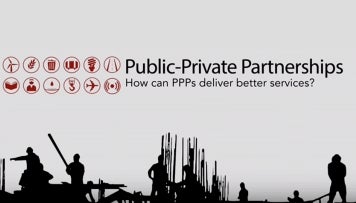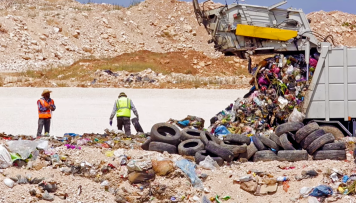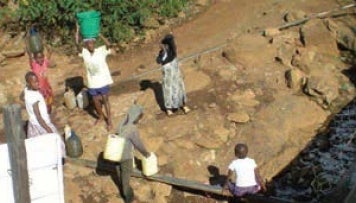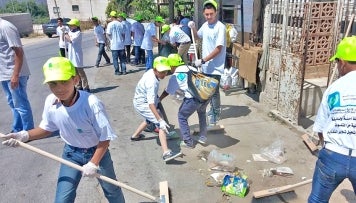
Expanding infrastructure and improving basic services is universally recognized as an essential element of economic growth and poverty reduction. It is also recognized that private sector financing is needed to address the infrastructure financing gap as reflected in the Sustainable Development Goals (SDGs). The development community and Multilateral Developments Banks are now focused on the Billions to Trillions agenda to mobilize ‘billions’ in ODA financing and resources to attract, leverage, and mobilize ‘trillions’ in investments from other sources. By partnering with the private sector through Public-Private Partnerships (PPPs), in addition to private and commercial financing, governments can tap into the innovation, technology, and technical and commercial expertise of companies to deliver essential public goods and services.
PPPs typically focus on building large infrastructure projects and Results-Based and Output-Based Financing (RBF/OBA) approaches can add value to PPP projects by focusing on access to basic services for the poor, who are often excluded because they cannot afford to pay the full cost of the connection. Several specific examples of PPP projects enhanced by GPOBA components are provided below and more examples can be found on the GPOBA website.
In the Philippines, an OBA component was embedded within an existing PPP concession in which the Manila Water Company (MWC), a private entity, assumed responsibility for the operation of the East Zone of Manila in an arrangement with the state-owned Metropolitan Waterworks and Sewerage System. The OBA subsidy helped to expand MWC’s service to low-income communities by funding water connection charges. Ultimately, the project helped to connect 28,563 poor households, benefitting 142,810 residents.
In West Bank and Gaza, GPOBA supported the first PPP project in the country through a subsidy to improve the sustainability of a privately managed Solid Waste Management (SWM) project. The subsidy provides partial support to offset the costs associated with proper disposal in the new sanitary landfill and improve municipal service performance. This project is designed to benefit about one-third of the population of the West Bank (approximately 800,000 people) and includes the sanitary landfill, as well as some small-scale recycling and composting.
In Kenya a micro-finance loan project is helping increasing access to clean and reliable water for rural communities, using a blend of commercial finance and an output-based subsidy. The project is helping small community-based private water providers access the finance they need to improve existing water systems and connect poor households to piped water supply. This project shows that investing in community water projects can be viable for commercial banks. Following a successful initial pilot, the program is being expanded nationally and will target over 165,000 beneficiaries in 55 communities.
In Bangladesh, GPOBA supported the Rural Electrification and Renewable Energy Development (RERED) project to increase access to electricity for poor households in remote, rural areas. The project, implemented by the Infrastructure Development Company Ltd. (IDCOL), provides loans to private sector companies to support infrastructure projects in Bangladesh. Through the use of subsidies, OBA encourages private sector interest and helps to build markets for products and services that private providers were not interested in due to potential risk of financial losses. To date, this project has helped install 3,214 Solar Home Systems and reached 16,070 beneficiaries.
In Liberia, as part of a World Bank-financed project, GPOBA provided a subsidy to partially offset capital investment costs needed to build transmission and distribution networks to reach 21 low-income neighborhoods in Monrovia. The project was undertaken with Liberia Electricity Corporation (LEC), which is operated by an international private operator, Manitoba Hydro International. The project has helped to connect 16,739 poor households and 83,695 beneficiaries to the grid in those neighborhoods.
RBF and OBA, with a focus on social inclusiveness, can play an important role in PPPs. Through pro-poor targeting and emphasizing accountability in service delivery, these approaches can help to ensure that services and economic growth benefits provided by large scale PPP infrastructure reach poor and vulnerable populations.
Useful Resources
Output-Based Aid at Work in Public-Private Partnerships
Output-Based Aid for Solid Waste Management Nepal and the West Bank
Output-Based Aid in Bangladesh: Solar Home Systems for Rural Households
Scaling Up Blended Financing of Water and Sanitation Investments in Kenya
PPP Knowledge Lab
Public-Private-Partnership in Infrastructure Resource Center (PPPIRC)
From Billions to Trillions: MDB Contributions to Financing for Development










